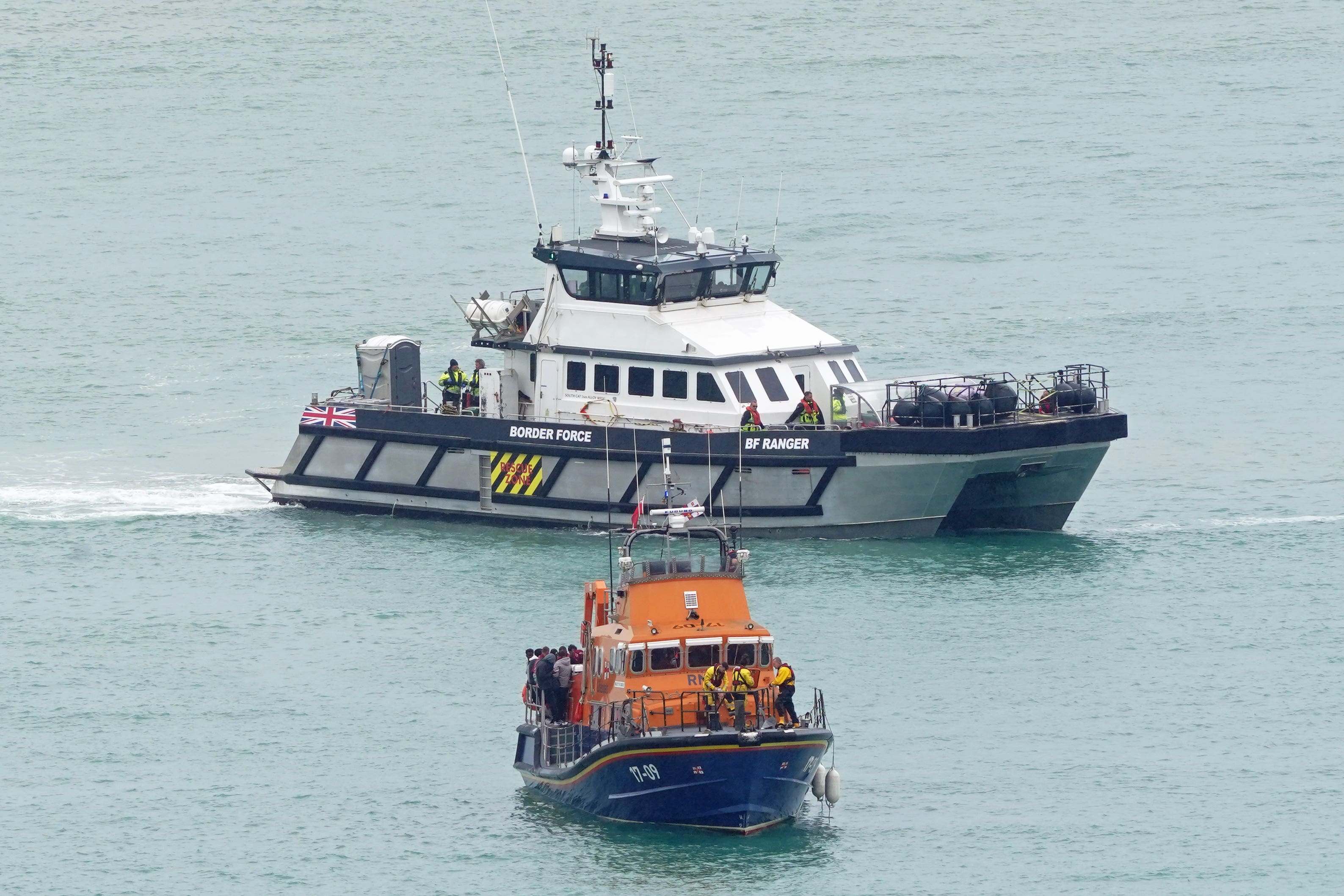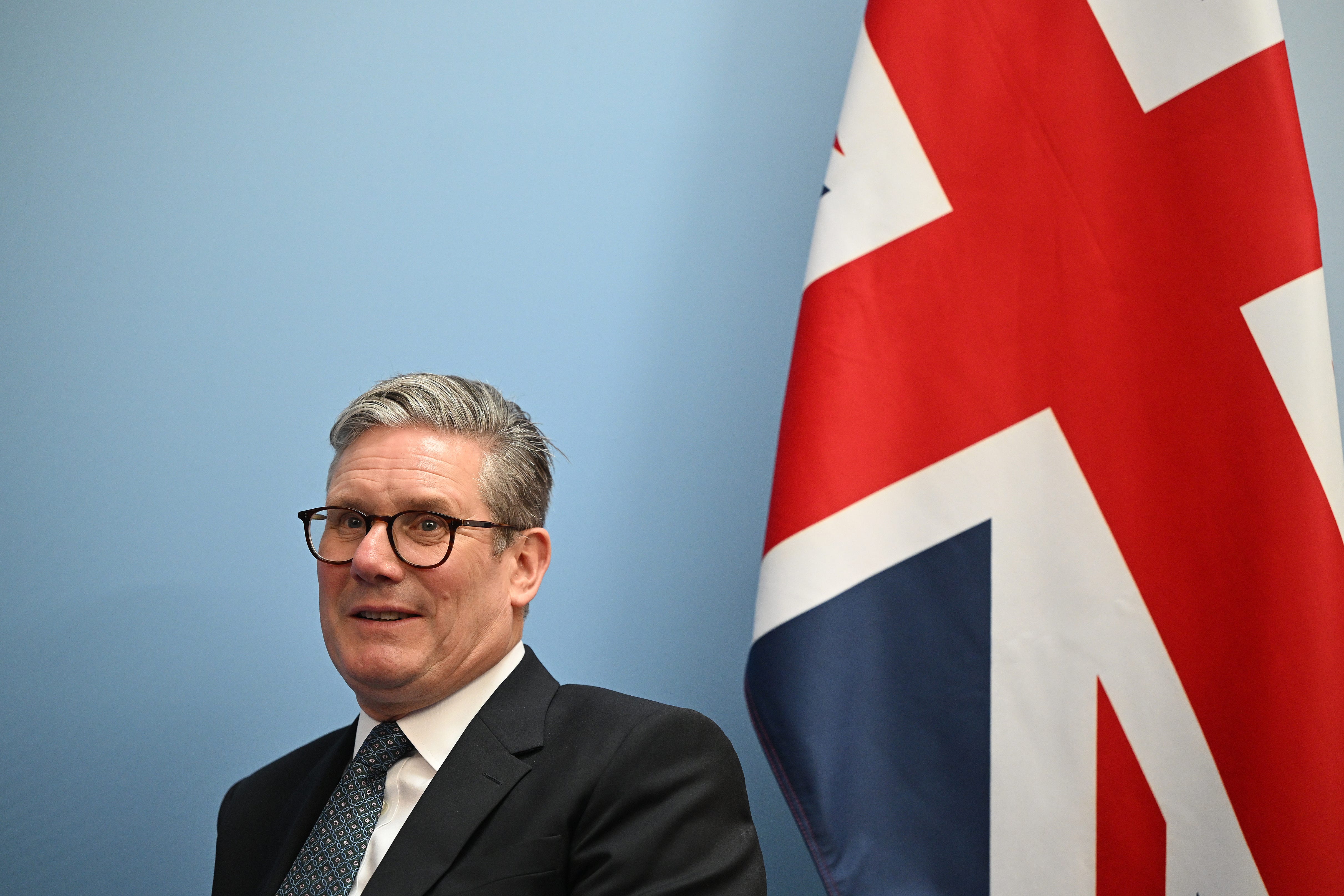Border Force returns small boat Channel migrants to France for first time
A Border Force vessel supported the rescue of 71 migrants in French waters on Wednesday and helped return them to France
The UK took migrants saved in the Channel back to France for the first time in a sign of increased Anglo-French cooperation on small boats.
A Border Force Ranger catamaran and an RNLI lifeboat were dispatched from Dover after France called for help on Wednesday.
French ship PSP Cormoran picked up 59 people in the operation, and the British vessel rescued another 13.
One migrant died when their small boat deflated near Calais and they could not be resuscitated, but the other 71 people were taken back to France in both ships.
It was the first time a British vessel picked up migrants in French waters and returned them to France.

A Maritime and Coastguard Agency spokesperson said: “HM Coastguard received a report of a small boat in difficulty in French waters near Calais at about 2.40pm on July 17.
“A Border Force vessel and RNLI lifeboat were sent to support French vessels in the operation, co-ordinated by French authorities.”
The French coastguard added it continued to search the scene until nightfall and no further people were found in the water.
Typically migrants rescued in the Channel by Border Force are required by France to be taken to the UK, with the French having resisted calls to allow them to be returned as a deterrent.
The Home Office denied there had been a change in policy, but UK officials told The Telegraph the move is a sign of what Britain and France can do to address the small boats crisis with greater cooperation.
The operation came days after it was confirmed more than 1,000 migrants have arrived in the UK after crossing the Channel since Sir Keir Starmer became prime minister.
Home Office figures show 427 people made the journey in seven boats on Monday, taking the provisional total for the year so far to 14,759.
It means the number of arrivals recorded since Sir Keir took office on July 5 in the wake of Labour’s election victory now stands at 1,185.

Home secretary Yvette Cooper told a cabinet meeting on Tuesday that Channel crossings were at a record high in the first half of the year and indicated a “difficult summer ahead”.
The total number of crossings for 2024 to date is 12 per cent higher than the number recorded this time last year (13,200) and up 1 per cent on the same period in 2022 (14,554), the current record year.
Concluding the European Political Community (EPC) summit on Thursday, hosted by the UK at Blenheim Palace in Oxfordshire, Sir Keir accused Rishi Sunak’s government of a "dereliction of duty" on small boats and pledged £84 million in foreign aid to help stop irregular migration.
He also suggested he is open to an offshore processing arrangement similar to one agreed between Italy and Albania, saying he was "a pragmatist" who would "look at what works".
He said: "This is a vital part of gripping the migration crisis and it shows how we’re going to do business on the world stage.
"We are facing up to the huge problems beyond our shores, because these problems echo at home. The effects play out on our streets and in a dangerous world we serve no one and solve nothing by turning inward."
The money, to be rolled out over the next three years, includes funding for projects to improve education and employment opportunities, as well as efforts to build resilience to shocks such as conflict and climate change, in the hope that this will persuade people not to leave their homes and travel to Europe.
He also suggested the UK would be open to an offshore processing deal, having discussed Albania’s arrangement with Italy during a meeting with his Albanian counterpart Edi Rama.
He said there had been "interest in how that might work", adding: "I’m a practical person, I’m a pragmatist and I’ve always said we’ll look at what works.
"And where cases can be processed closer to origin, then that is something which of course ought to be looked at."
Join our commenting forum
Join thought-provoking conversations, follow other Independent readers and see their replies
Comments
Bookmark popover
Removed from bookmarks